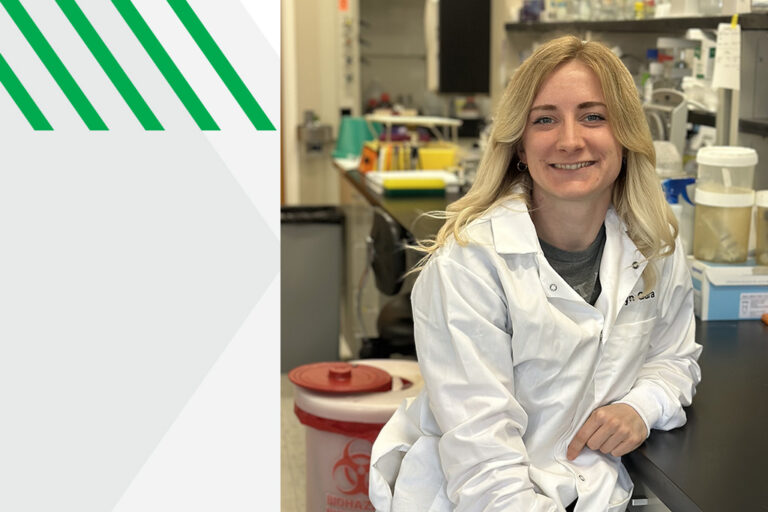UND School of Medicine & Health Sciences designated as an AMA Innovation Site
The UND School of Medicine & Health Sciences (SMHS) has been designated by the American Medical Association (AMA) as an Innovation Site for its project entitled “Badging for Competency-Based Medical Education while Promoting Transition and Equity and Diversity.” The work grows out of the School’s membership in the AMA’s Accelerating Change in Medical Education (ChangeMedEd) Consortium, which began in 2015.
“We are very excited to be one of only 10 medical schools designated by the AMA as an innovation site,” said Dr. Richard Van Eck, the SMHS associate dean for teaching and learning.
Van Eck will lead the School’s Innovation Site design team, comprising Dr. Jon Allen, director of the SMHS Simulation Center; Dr. Eric Johnson, director of interprofessional education; Dr. Adrienne Salentiny, director of instructional design and technology; and Andrea Guthridge, instructional designer at the SMHS, who will provide support and expertise to the work.
Spurred on by the Association of American Medical Colleges (AAMC), the Accreditation Council for Graduate Medical Education (ACGME), and the AMA, medical schools across the country have been developing a variety of competency-based medical education (CBME) projects. Such projects led the AMA to include in its strategic plan a goal that focuses on “concentrating on developing the foundational attributes of precision education and its real-world application via investments in new partnerships and exploratory pilots” in the area of CBME. Partnerships and pilots include projects in the areas of equity, diversity, and belonging; precision education; and transitions across the continuum.
For the UND SMHS team, said Van Eck, this emphasis by the AMA represented the formalizing of work faculty at UND had already initiated.
“Our work on developing interprofessional telehealth simulation education from 2015-2018 as part of the AMA’s ChangeMedEd Consortium put us on the national map as an innovative school,” he added. “When the M.D. program adopted competencies as program outcomes, we saw it as a chance to continue to lead again by exploring the use of badging for competency as part of our continued membership in the ChangeMedEd Consortium. Now that we have implemented badging for competency in the medical program through our Telehealth and Interprofessional Collaboration badges, we proposed to research and disseminate our work through the AMA program as an Innovation Site.”
Based on recommendations of an ad hoc committee studying the implications of the newly adopted competencies, the SMHS Undergraduate Medical Education Committee adopted badging for competency as a formal part of the School’s M.D. curriculum in 2020. Badges allow students to document the application of knowledge, skills, and attitudes over time at different levels of expertise, and in the normal workflow and context of their professional lives. Badges are ideally suited to measuring these kinds of outcomes, which are not well-suited to multiple choice tests or clinical skills exams. Badges also allow students to demonstrate and document diverse skills and interests beyond the required curriculum. Students can seek optional badges, which can help them communicate their diverse skills, interests, and abilities to residency directors, who may be better able to evaluate how well the student will fit within the culture of the residency.
The designation as an Innovation Site comes with an ongoing commitment to continue the medical education program’s work on curriculum badging for competency. Badging addresses one of the ChangeMedEd Consortium’s focus areas – Competency-Based Medical Education – but also addresses diversity, equity, and inclusion/belonging, or DEI(B). The team also plans to recruit a badge “champion” to develop a DEI(B) badge.
In addition to DEI(B), SMHS faculty have proposed badges on research, virology, antimicrobial stewardship, and rural health care. The M.D. program is also actively recruiting faculty who currently teach in the program to submit additional badge proposals. The hope is to expand the badging platform to all programs in the SMHS in the future.
For more information, contact Dr. Richard Van Eck at 701.777.3528 (richard.vaneck@UND.edu) or Dr. Adrienne Salentiny at 701.777.4272 (adrienne.salentiny@UND.edu).



